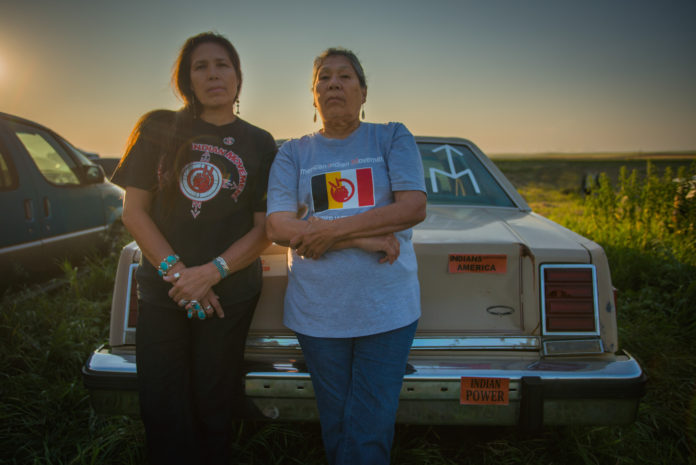The 2018 documentary Warrior Women was screened Jan. 30 as part of Transy’s Creative Intelligence series. The film follows Madonna Thunder Hawk from the civil rights movements of the 1970s to the Standing Rock pipeline faceoff. It was, and is, Native American women, like Thunder Hawk, who are the chief organizers of great social upheaval.
As a child, Thunder Hawk lost her home to dams built by the U.S. government. As an adult, her passion is fed by her search for a home for herself and all Native Americans. She established “survival schools,” which in some ways counteracted the effects of boarding schools where Native American children were sent to assimilate. Often, these children were snatched from their families without warning. Their hair was cut and they were forbidden to speak anything but English.
At these survival schools, children learn about the important relationship people have with stolen land that can never be given be back, land disputed by treaties, and land bloodied by war. These are the lands that remain. For Native Americans, there was not just one massacre that fixed things between settlers and the indigenous people. There were many massacres and many instances of erasure to remove them from our view.
After the film, viewers got to speak with Madonna Thunder Hawk via Skype. She is 80 years old, but is still attending to the causes she has been fighting for since the beginning of the civil rights movement. Recently, she has been working on building a Children’s Village with Simply Smiles so that children and families will have access to food, education, shelter, clothing, and infrastructure. Many Native American children are ripped from their families, even today, because of unfair child welfare laws that allow the state of South Dakota to interfere with reservation business. Thunder Hawk does not see these problems as issues that can be put to rest. Inequality is ongoing. It takes the shape of pipelines, miseducation, and foster care.



